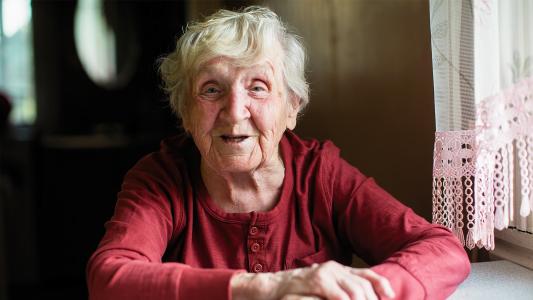Pfizer’s COVID-19 vaccine works in kids, according to the newly released topline results of a trial involving more than 2,000 minors between the ages of five and 11.
“There’s going to be a huge number of parents who are going to heave a big sigh of relief when they hear this,” pediatrician Kristin Oliver told the New York Times. “We’ve been waiting for these kids to be protected.”
The challenge: While minors are less likely to get extremely sick if they’re diagnosed with COVID-19, some do end up being hospitalized and at least 460 have died from the disease in the U.S.
Even if young people don’t get severely sick, they can still spread COVID-19 to others and make it hard for schools to stay open.
The number of kids diagnosed with COVID-19 weekly has increased about 240% since July.
No time to waste: Vaccinating younger kids could help us stop the spread of COVID-19, but the shots are currently only available to people 12 and older.
That leaves millions of children fully exposed to the coronavirus at a time when cases in minors are surging — children now represent more than 25% of new cases, and the number of kids diagnosed with COVID-19 weekly has increased about 240% since July.
The trial: To find out if its COVID-19 vaccine works in kids, Pfizer enrolled more than 2,200 children between the ages of five and 11 in a phase 2/3 trial.
Two-thirds of the kids received two doses of Pfizer’s shot, delivered three weeks apart. Each dose contained 10 micrograms of vaccine, a significantly lower dose than the one authorized for people over the age of 12, which use 30 micrograms. The rest of the children received a placebo.
Despite their doses being much smaller, the vaccinated kids displayed antibody levels on par with vaccinated 16- to 25-year-olds one month after receiving their second shot. They also tolerated the shot well, reporting similar side effects as teens and young adults.
“We are eager to extend the protection afforded by the vaccine to this younger population.”
Albert Bourla
What’s next: Pfizer plans to submit this evidence that its COVID-19 vaccine works in kids to the F.D.A. before the end of September in the hope of securing an emergency use authorization as soon as possible.
“We are eager to extend the protection afforded by the vaccine to this younger population, subject to regulatory authorization, especially as we track the spread of the Delta variant and the substantial threat it poses to children,” CEO Albert Bourla said.
Pfizer is also testing a 3-microgram dose of its COVID-19 vaccine in children from age six months to 5 years. It hopes to have results from that cohort before the end of 2021.
We’d love to hear from you! If you have a comment about this article or if you have a tip for a future Freethink story, please email us at [email protected].






